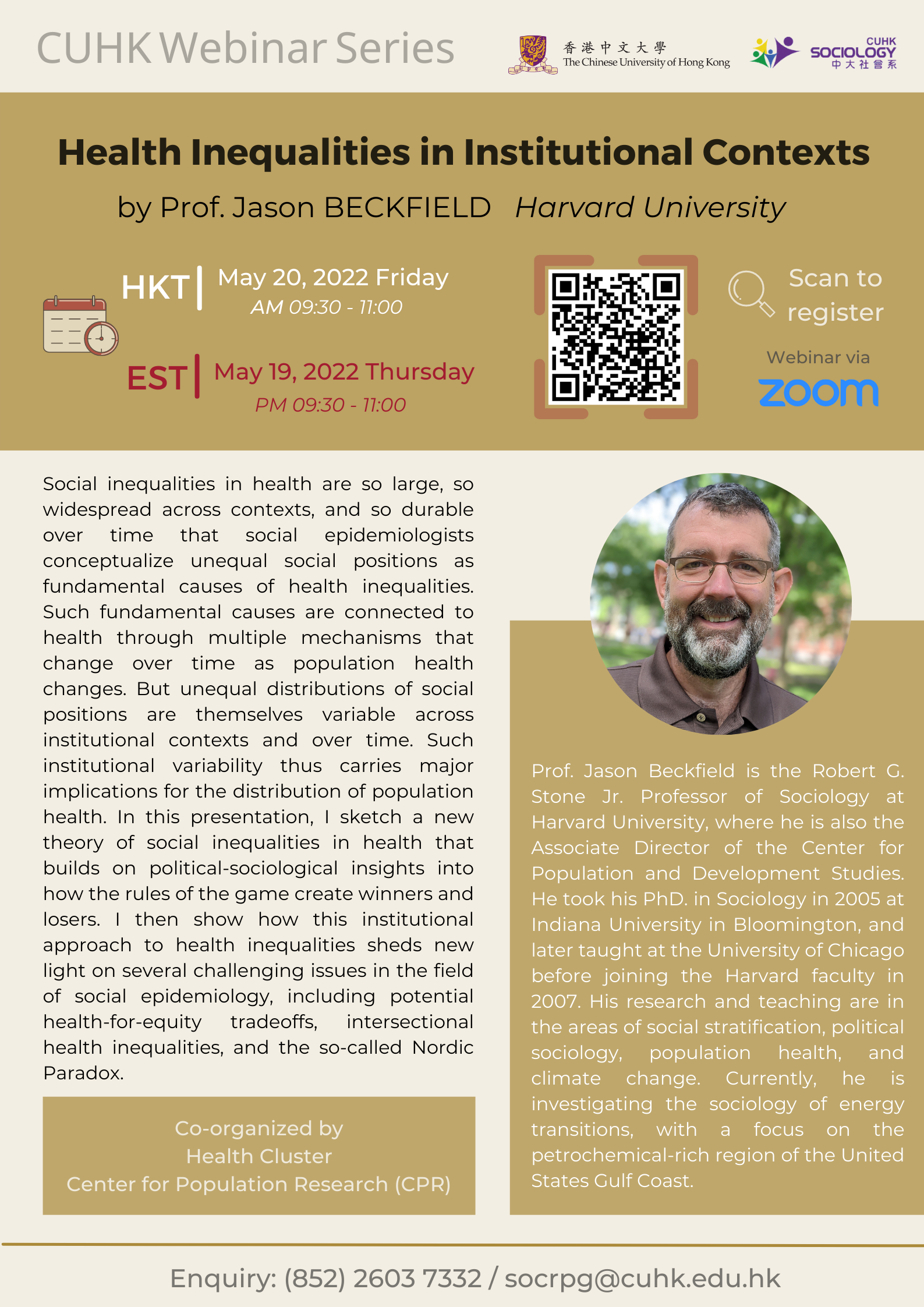
socrpg@cuhk.edu.hk
Abstract
Social inequalities in health are so large, so widespread across contexts, and so durable over time that social epidemiologists conceptualize unequal social positions as fundamental causes of health inequalities. Such fundamental causes are connected to health through multiple mechanisms that change over time as population health changes. But unequal distributions of social positions are themselves variable across institutional contexts and over time. Such institutional variability thus carries major implications for the distribution of population health. In this presentation, I sketch a new theory of social inequalities in health that builds on political-sociological insights into how the rules of the game create winners and losers. I then show how this institutional approach to health inequalities sheds new light on several challenging issues in the field of social epidemiology, including potential health-for-equity tradeoffs, intersectional health inequalities, and the so-called Nordic Paradox.
About the speaker
Jason Beckfield is the Robert G. Stone Jr. Professor of Sociology at Harvard University, where he is also the Associate Director of the Center for Population and Development Studies. He took his PhD. in Sociology in 2005 at Indiana University in Bloomington, and later taught at the University of Chicago before joining the Harvard faculty in 2007. His research and teaching are in the areas of social stratification, political sociology, population health, and climate change. Currently, he is investigating the sociology of energy transitions, with a focus on the petrochemical-rich region of the United States Gulf Coast.

